In today’s diverse classrooms, students often face unique challenges that go beyond academics. For many, these obstacles stem from difficulties with motor skills, sensory processing, or self-regulation, which can impact their ability to learn and thrive in a school environment. This is where school-based occupational therapy plays a transformative role, helping students overcome barriers to participation and achieve their full potential.
Occupational therapists (OTs) bring specialized expertise to schools, providing individualized support that enhances student success. In this blog, we’ll explore why students benefit from occupational therapy at school and how Educational Therapy Professionals helps schools build effective therapy programs.
What is School-Based Occupational Therapy?
Occupational therapy focuses on helping individuals perform daily activities with greater ease and independence. In a school setting, this means supporting students in developing the skills they need to succeed in academic tasks, social interactions, and self-care.
Key areas addressed by school-based occupational therapy include:
- Fine Motor Skills: Writing, cutting, and manipulating small objects.
- Gross Motor Skills: Coordination, balance, and physical movement.
- Sensory Processing: Managing sensory input like sounds, textures, and movement.
- Self-Regulation: Controlling emotions, behaviors, and attention.
- Life Skills: Developing independence in tasks like eating, dressing, and organizing materials.
Occupational therapists collaborate with teachers, parents, and administrators to create strategies tailored to each student’s unique needs.
Why Students Benefit from Occupational Therapy at School
School-based occupational therapy offers numerous benefits for students, teachers, and the overall learning environment. Below are the top reasons why this service is essential in today’s schools.
1. Improved Academic Performance
Students who struggle with fine motor skills may find it difficult to write, type, or use classroom tools. Occupational therapists help these students by:
- Strengthening hand-eye coordination and dexterity.
- Teaching techniques for better handwriting or keyboard use.
- Introducing adaptive tools like pencil grips or slant boards.
Why It Matters: When students can complete tasks more easily, they gain confidence and focus on learning.
2. Enhanced Sensory Processing
Many students have difficulty processing sensory input, leading to distractions or discomfort in the classroom. Occupational therapy provides strategies to help students:
- Tolerate sensory stimuli like noise, light, or touch.
- Use sensory tools like weighted blankets or fidget toys to self-soothe.
- Create sensory-friendly environments that support focus and calmness.
Why It Matters: Effective sensory processing allows students to stay engaged and participate fully in class activities.
3. Increased Independence
Occupational therapists work with students to develop life skills that promote independence. These skills include:
- Organizing materials and managing time for assignments.
- Learning self-care tasks like dressing or using utensils.
- Navigating physical spaces, such as climbing stairs or moving through hallways.
Why It Matters: Independence boosts self-esteem and prepares students for future success.
4. Better Social Interactions
Some students face challenges in building relationships due to difficulties with communication, body language, or play skills. Occupational therapy helps by:
- Teaching appropriate social cues and responses.
- Encouraging cooperative play and teamwork.
- Addressing anxiety or behavioral issues that hinder interactions.
Why It Matters: Strong social skills foster friendships and create a positive school experience.
5. Support for Teachers and Classrooms
Occupational therapists don’t just support students—they also empower teachers. OTs provide:
- Classroom strategies for managing diverse student needs.
- Tools and techniques to create inclusive learning environments.
- Insights on adapting lessons for students with physical or cognitive challenges.
Why It Matters: A collaborative approach ensures all students benefit from a well-supported classroom.
How Educational Therapy Professionals Supports Schools
Building a successful school-based occupational therapy program requires access to skilled professionals and effective resources. That’s where Educational Therapy Professionals comes in.
We specialize in connecting schools with experienced occupational therapists who are passionate about helping students succeed. Here’s how we support schools:
- Tailored Staffing Solutions:
We provide full-time, part-time, and temporary OTs based on your school’s specific needs. - Qualified Therapists:
Our network includes certified professionals with expertise in pediatric and school-based therapy. - Program Development:
We assist schools in creating or enhancing occupational therapy programs that align with state and federal guidelines. - Ongoing Support:
Our team remains available for guidance and resources to ensure long-term success.
Educational Therapy Professionals is your trusted partner in fostering inclusive and effective learning environments.
The Future of Occupational Therapy in Schools
As schools continue to prioritize inclusivity and personalized learning, the demand for occupational therapy is expected to grow. Advances in technology, such as virtual therapy and assistive devices, are making it easier to deliver these services effectively.
By investing in school-based occupational therapy, schools can address the diverse needs of their students while building a more supportive and equitable educational system.
Conclusion
Why do students benefit from occupational therapy at school? Because it addresses the barriers that prevent them from reaching their full potential. From improving motor skills to enhancing social interactions, occupational therapy equips students with the tools they need to thrive academically and personally.
With the support of Educational Therapy Professionals, schools can create comprehensive therapy programs that make a lasting impact. Contact us today to learn how we can help your school build a brighter future for every student.





